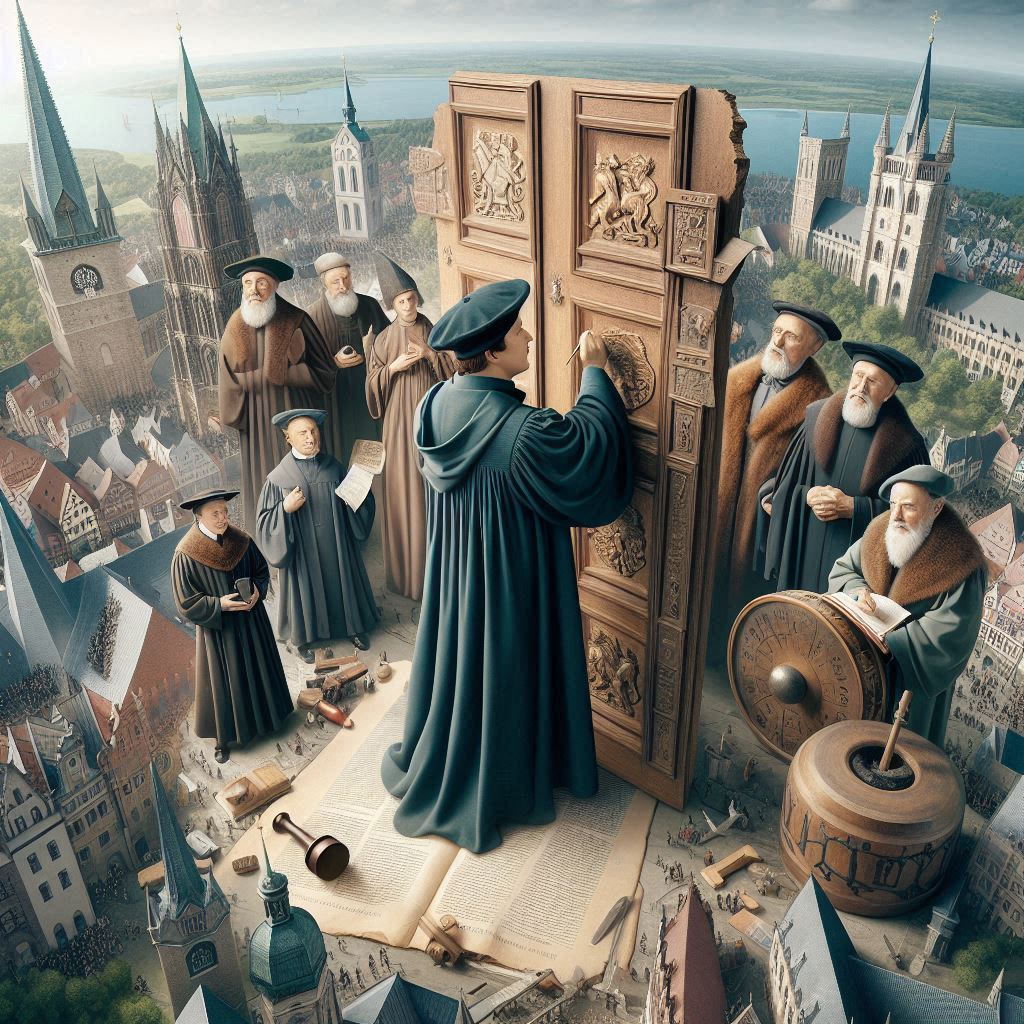The History Of Lutheranism
In the quiet corners of medieval Europe, amidst the whispers of the faithful and the shadows of ancient cathedrals, a rumbling began. It was a murmur of discontent, a yearning for truth unadorned by the opulence of the Church. This rumbling found its voice in a humble monk named Martin Luther.

Picture him, if you will, in his monastic cell, his eyes alight with the fire of revelation. Born of ink and parchment, Luther’s words were like thunderclaps in the tranquil landscape of religious orthodoxy. He dared to challenge the established order, to question the very foundations upon which the Church stood.
With the stroke of a quill, Luther ignited a conflagration that would sweep across Europe, leaving in its wake a new religious movement: Lutheranism.
But this was no mere rebellion; it was a reformation, a reclaiming of the true essence of Christianity from the clutches of corruption and excess.
The story of Lutheranism is one of upheaval and renewal, of fervent believers standing against the tide of tradition. It is a tale of courage and conviction, of ordinary men and women defying the powers that be in the name of faith.
Yet, as with all revolutions, Lutheranism was not without its trials and tribulations. The fires of persecution raged hot, threatening to consume those who dared to embrace this new way of worship. But like a sturdy oak in the midst of a storm, Lutheranism stood firm, its roots anchored deep in the soil of truth.

And so, the Lutheran faith endured, spreading its branches far and wide, casting a shadow of hope upon a world shrouded in darkness. From the cobblestone streets of Wittenberg to the distant shores of America, the legacy of Martin Luther lives on, a beacon of light in a world fraught with uncertainty.
In the end, the history of Lutheranism is not just a chronicle of religious doctrine; it is a testament to the indomitable spirit of humanity, a reminder that even in our darkest hours, faith has the power to illuminate the path forward.



